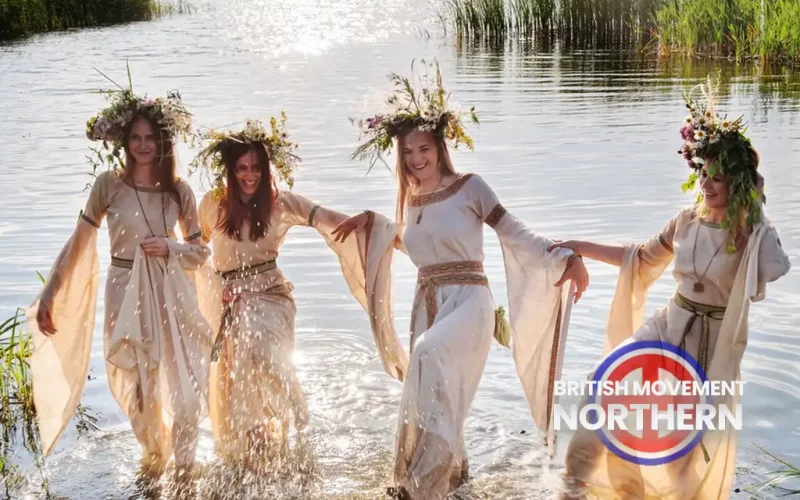Spring is the time of lengthening days and the awakening of nature, when light triumphs over darkness and the cold winter. Everything seems be changing for the better, the trees and plants are in bud, the early flowers are blooming. The rays of the sun are becoming warmer. The wheel of life is turning anew.
At this time of year we celebrate one of the biggest Christian festivals, Easter. But the ancient Christians stole it from the Pagan celebration of Ēostre and the Spring Equinox.
So when the devout Christian family is decorating eggs at the kitchen table with their children, they’re actually paying homage to the ancient pagan rituals of the past.
Eostre first makes her appearance in literature about thirteen hundred years ago in the Venerable Bede’s Temporum Ratione. Bede tells us that April is known as Eostremonath, and is named for a goddess that the Anglo-Saxons honoured in the spring.
According to the stories, she is a goddess associated with flowers and springtime, and her name gives us the word “Easter,” as well as the name of Ostara itself.
“Mrs. Ostara walks across the country with her favourite animal, the rabbit, and brings spring with her. She drives away the ice giants and brings us the warmer time.”
We wish all members, activists and friends of the British Movement a happy Eostre with their families and comrades.
The British Movement would love to receive articles for possible inclusion on this site from members and supporters across the North of England. Please remember that we have to operate within the laws of this country – we will not include any content that is against the current laws of the United Kingdom. News reports should be topical and be relevant to the regions covered by this website.












